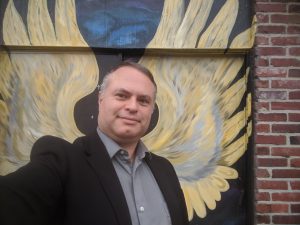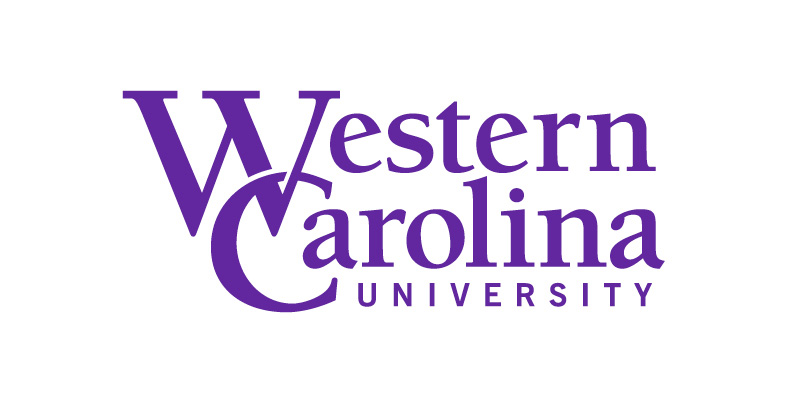
I am ending my term as Chair of the Faculty this month. I am grateful for the support of the Faculty who gave me this opportunity to serve this institution in this leadership capacity. I was elected in this position without the benefit of a year as Chair Elect, and limited prior experience in Faculty governance. The learning curve was steep, and I made my share of mistakes. What did I learn about governance and this institution during my year as Faculty Chair?
This lesson is going to be colored by the shock of COVID-19 and the academic continuity effort to bring Spring 2020 to conclusion and planning for the Fall. Like many of you, I am in mourning for the loss of so many projects and educational opportunities. My Spring calendar is littered with student presentations, public outreach efforts, and other events that I had been involved in that will never happen. Now that we are planning for Fall, I see my colleagues at WCU and across the country in vigorous discussion about teaching, learning, and risk management with so many unknowns. What is the absolutely minimum that we should teach in each of our courses? What can and cannot be taught online or in a hybrid setting? What are the elements of face-to-face instruction that enriches and adds meaning to the educational experience? Can those be reproduced in other formats? My heart sinks when I account for all the student-centered teaching techniques that I have developed over the years in conjunction with colleagues across the world that are not available for us in the Fall. We are all thinking collectively about curriculum at a level we never have before.
But even before the governor’s COVID order to universities and schools, I felt consistently moved by the professionalism, dedication and focus of staff from so many units at this University. So often I saw able staff stay mission focused in service to student success. Likewise, I have been touched by fellow Faculty that have stepped up to answer the call for service to the University leveraging their expertise and experience to sustain the institution and support our students. However, so often such efforts ran up to the limits imposed by budgets, shaped by statute and NC General Assembly priorities.
A principle of shared governance in higher education is that academic freedom affords Faculty the supervision of the curriculum while the Administration, under the regulations of the UNC system and ultimately the General Assembly, control the purse. At issue is the many ways purse and curricula overlap. We are now a decade after the US Supreme Court landmark decision Citizens United vs. FEC that introduced the expression “money is speech” into current parlance: money spent carries with it, presumably, information about one’s values by how it’s allocated and hence makes it protected. As a corollary, it follows that state budgets also carry information about collective values and priorities. When it comes to education, budgets are curriculum. The General Assembly may not be able to explicitly inject content into our syllabi, but in its budget implementations it implicitly does.
Since 2008, we have seen real salary for faculty cuts (adjusted for inflation) at WCU and across the UNC system. Those cuts, depending on tier and discipline, can be between 6% to 20%. These become statements about how the state values its public institutions of higher education in general, the content of their curricula, and the values of various initiatives. The cumulative effects of these cuts are programs that cannot attract nor retain talent at the time when student demand for education is higher than ever.
The administration of Chancellor Kelli Brown has taken definite steps to address some of these issues at least when it comes to salary compression and inversion with recommendations from the newly created Faculty Salary Committee. But any action is constrained by statute and an uncertain state budget climate. In my experience with UNC Faculty Assembly, I saw how the interests of UNC Faculty and Staff was often set at odds with those of K-12 educators, other state government sectors and citizens that could benefit from expansion of Medicaid. But this does not have to be. Arguments that constrained public expenditure to limit deficits have lost weight given how under an existential public health crisis all levels of government have thrown such concerns out the window. Our present global climate emergency and the economic disruption it entails in the long term is also an existential crisis not entirely decoupled with COVID-19 as well.
We may have recourse to a patchwork of local solutions to our budget situation, but the situation is not sustainable in the long term. The present public health crisis only highlights the extent of the higher-ed crisis already in place. What is needed now is a new compact with the people of North Carolina that has a long term perspective and involves a thoughtful investment in infrastructure: both physical and human. I believe that faculty should be active participants in the public discussion of this investment. If state budgets are curricula, we will not truly have shared governance until we insert ourselves into those discussions in the public sphere, and this comes from cultivating a sense of belonging to the communities we serve and seeking publicly relevant scholarship and research. Faculty should assess how much the performance of academic insularity for the sake of maintaining the image of scholarly objectivity has protected our institutions and our students from the ideological polarization that is shaping every over aspect of our lives.
For now, we have this emergency to go through, but we as Faculty must remain vigilant of what is emerging in our horizon. I leave the Faculty Senate in the hands of Kadie Otto, who begins her term in July and is a strong advocate for the Faculty. My work to advocate for the University and our students’ success, which is our work, will still continue for years to come. Thank you all. Continue to lead with love.

Recent Comments